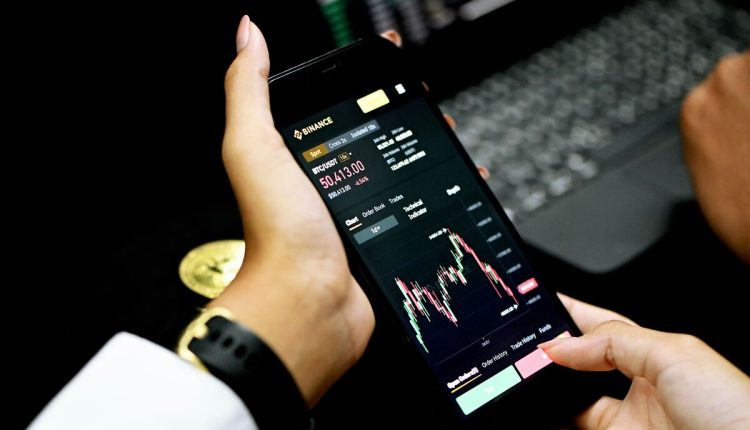Currency Trading (commonly referred to as forex or FX) is an over-the-counter market for trading international currencies. Much like stock markets, currency markets can be affected by supply and demand issues, economic data updates, geopolitical events, and geoeconomic speculations. Find out the best info about forex robot.
Currencies are usually quoted in pairs, such as EUR/USD, with prices measured in pip units. Many traders employ a strategy known as mean reversion, which suggests that currencies have long-term average levels and tend to return toward this equilibrium over time.
Definition
The foreign exchange (forex) market, more commonly referred to as the forex market, is the world’s most expansive financial marketplace. Operating over-the-counter (OTC), trillions are traded daily. It is open 24 hours per day, five days a week.
Currency trading takes place in pairs, and its value is determined by how much one currency is worth in comparison with another currency pair – for instance, EUR/USD is one such pair that indicates how much a euro costs when expressed as US dollars.
Governments, central banks, commercial and investment banks, other institutional investors and financial institutions, currency speculators, and retail speculative traders are among those participating in the forex market.
The currency market is highly susceptible to external forces such as economic stability and policies, natural disasters, and geopolitics that can influence supply and demand, leading to fluctuations in currency prices—an effect known as volatility. A currency trader must understand how best to respond to this volatility, for instance, by using technical analysis techniques to enter and exit markets at optimal times.
Types of trades
Long trades, the primary form of currency trading, involve betting that the exchange rate between currency pairs will increase; short trades involve betting against this happening instead.
Currencies fluctuate due to various factors, including central bank policies, unemployment rates, and economic news. This provides traders with opportunities to make a profit.
As with stock trading, currency quotes include both bid and ask prices. The former indicates how much of the base currency (in this case, USD) it takes to purchase one unit of the pair, while its respective ask price indicates how many can be sold against one unit of USD.
Option and swaps markets provide another form of currency trading not seen with spot, forward, and futures markets: options and swaps contracts that do not involve actual physical currencies but instead involve contracts based on them with defined delivery and settlement dates – often known as derivatives contracts and used by traders to speculate on currency prices without directly owning these underlying assets.
Risks
Currency traders face several risks associated with currency trading. Among them are market risk and counter-party risk. The former involves being exposed to fluctuations in currency pair prices, while counter-party risk involves dealing with brokers that fail to fulfill contractual agreements.
Additionally, companies risk reporting their financial statements in currencies different from those of their home country. For example, a Canadian company receiving financial transactions denominated in Chinese yuan will need to convert them back into Canadian dollars before reporting them accurately on its financial statements – and any decrease in its conversion rate may render its statements inaccurate.
Companies operating outside their domestic markets face economic risk when local currencies depreciate relative to those used for purchases in regional economies. Forward contracts provide a means to lock in an exchange rate for future transactions – useful both as an economic hedge and for holidaymakers who wish to reduce exchange-rate fluctuations while planning travel expenses.
Trading platforms
Many of the same forces that drive stock prices also influence currency markets. Interest rate decisions by major central banks, new economic data releases, and geopolitical tensions can all have a dramatic effect on currency prices.
The best forex trading platforms feature user-friendly interface designs and advanced technical analysis tools. When selecting a platform, be sure to find one with multiple forms of customer support – live chat and phone services are ideally suited. Some platforms also provide virtual accounts so traders can practice trading strategies before risking real money.
Forex brokers must be licensed by an authoritative regulatory body to adhere to stringent financial standards and protect traders from dubious practices. US traders should look for brokers registered with the Commodity Futures Trading Commission and National Futures Association; Australia, New Zealand, Europe, and UK brokers also adhere to stringent standards when operating as Forex brokers. Each type of trade offers its own set of benefits and risks.
Education
Currency trading can be one of the most thrilling and profitable career options available to financial professionals today. With huge potential profits to be made here, careful research and planning are also required to succeed. For those wanting to know how they can become successful traders, here are some tips on getting started:
Investment firms frequently require postgraduate qualifications for entry. There are also online courses designed to teach people more about this industry; these may help give participants a deeper insight into markets, proving particularly helpful if they live remotely or overseas.
Before venturing into the foreign exchange market, you must have an in-depth education. Many online resources provide advice on risk management, such as leveraging investments and setting stop losses, which will protect your capital and increase your chances of success. A good forex education also teaches readers to read economic reports and gauge market sentiment.


